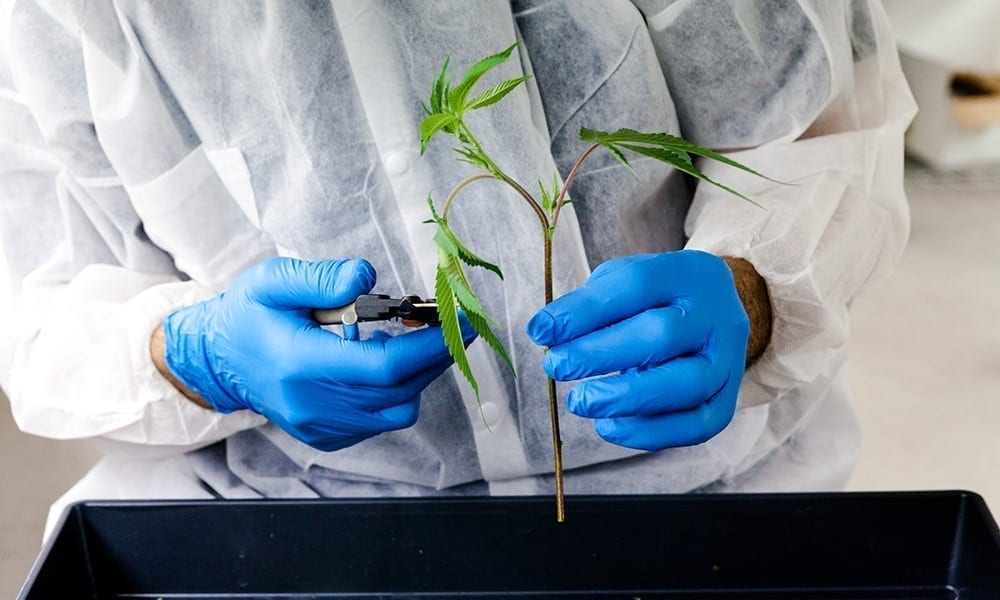Health and Wellness News, Legal, Politics
Oklahoma Adopts Medical Marijuana
Workable medical cannabis programs now legal across 30 states.
Tuesday’s primary vote in Oklahoma saw Sooners approve medical marijuana by a 13 point margin at the polls.
With 100 of precincts reporting Wednesday morning, the New York Times reports 506,782 voted in favor of Question 788 legalizing medical marijuana, 384,872 came out in opposition to the ballot initiative.
The law allows those with a forthcoming state issued Oklahoma medical marijuana license to consume legally and has plenty of urgency behind it. NPR affiliate StateImpact got their hands on the working draft of the state’s regulations. While the law requires certain things like allowing patients to possess up to 3 ounces on their person and have 8 ounces at home, six mature plants an ounce of concentrates and 72 ounces of edibles, there is still plenty of room for lawmakers tweak things to their liking as seen in other states.
This first effort at those tweaks came out of five working groups in the form of 63 pages of proposed regulations. Some of the big takeaways StateImpact had included things like the state’s plan to ban pregnant women from applying for a medical marijuana license. They also plan on defining things like doctors being required to have a “bonafide” physician-patient relationship with those they are recommending medical marijuana to. These are all subject to be modified during the special legislative session Gov. Mary Fallin said she would convene if the ballot measure passed so lawmakers can finalize the framework for regulating medical marijuana.
Activists are thrilled to see another state that voted in support of Donald Trump come out in favor of medical marijuana. The Marijuana Policy Projectnoted in a statement on the victory that Question 788 is the fourth medical marijuana initiative in a row to win in a state that went for Donald Trump, “and that number could grow to as many as six by the end of the year. They were approved in Arkansas, Florida, and North Dakota in 2016, and they will appear on ballots in Missouri and Utah this November.”
MPP went on to say effective medical marijuana laws have been adopted in 30 states, including Oklahoma, as well as in D.C. and the U.S. territories of Guam and Puerto Rico. They also said 19 other states’ medical marijuana laws are ineffective because they are either unworkable or exceptionally restrictive. Idaho is the only state remaining without some kind of medical marijuana law on the books.
“The passage of State Question 788 highlights the strength and diversity of public support for laws allowing the medical use of marijuana,” MPP Director of State Policies Karen O’Keefe said. “Most Oklahomans agree that patients should be able to access medical marijuana safely and legally if their doctors recommend it. It is noteworthy that this measure passed in such a red state during a primary election, when voter turnout tends to be older and more conservative than during a general election. Support for medical marijuana is overwhelming, and it spans the political and demographic spectrums.”
O’Keefe also noted MPP was happy to see officials taking the bull by the horns in terms of getting regulations out in a timely manner.
“We are pleased to see state officials are already working on developing a regulatory framework for medical marijuana, and we hope they will include patients, advocates, and other stakeholders in the process,” said O’Keefe. “It is important that patients have reliable access to the products that work best for their conditions. Oklahoma officials can learn a lot from the successes and shortcomings of other states’ programs, and hopefully they will create a system that will serve as an example for other states in the region.”
NORML Executive Director Erik Altieri says Tuesday night’s results further reinforce that medical cannabis is no longer a partisan issue.
“The sizable margin of victory for medical marijuana in a traditionally socially conservative state such as Oklahoma demonstrates that the issue has long since broken free from being a regional, partisan one,” Altieri told Cannabis Now. “Allowing patients access to a safe and effective treatment option such as cannabis is an issue of morality and compassion. The majority of Oklahoma voters stood up for those suffering in their state and as a result, countless patients will now be able to utilize marijuana as a treatment for their ailments without fear of law enforcement breaking down their door and treating them like criminals.”
Altieri called on lawmakers in Oklahoma’s neighboring states that lack medical marijuana protections to take notice and approve similar programs through their state legislatures.
Read more from the source: Cannabisnow.com
Photo Gracie Malley for Cannabis Now


